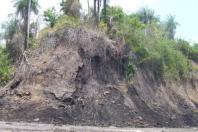Utah OKs nation’s first commercial oil shale mine
By Brian Maffly
| The Salt Lake Tribune
First Published Dec 20 2013 11:21 am • Last Updated Dec 20 2013 10:23 pm
Oil shale production can now move forward in Utah. Regulators on Friday issued a groundwater permit to Red Leaf Resources, a Utah company planning to develop a shale mine and below-grade ovens to heat ore mined from state land in the Uinta Basin.
A yuletide present to those championing Utah energy production, the permit issued by the Utah Division of Water Quality is the last big hurdle for North America’s first commercial oil shale mine. Red Leaf said it expects mining operations to begin in the spring.
Its initial, small-scale demonstration project "will produce more than 300,000 barrels of oil and prove our clean oil shale technology works on a large scale," said CEO Adolph Lechtenberger in a news release.
But environmentalists are dubious. Groundwater disruption is just one of many environmental drawbacks posed by the proposed development of the Uinta Basin’s rich oil shale and tar sands resources, according to activists. This is because ore is strip mined, and developers would consume more resources to convert hydrocarbon precursors, kerogen and bitumen, into liquid oil.
"They take the skin off the planet and are not putting it back. It’s going to be a moonscape," said John Weisheit of Moab-based Living Rivers. "They are destroying the watershed, the near-surface aquifers. It’s a water system that makes the ecosystem what it is."
But state regulators believe these lands don’t have much groundwater, and they are requiring Red Leaf to maintain monitoring wells to see how the project affects the water that is there.
"We based our permit decision on the absence of water in the extraction process, the lack of an aquifer and low permeability of the rocks underlying the test site," DWQ director Walt Baker said. "We plan to keep a close eye on the project to make sure the process works as promised."
Living Rivers has held up state approvals for a nearby tar sands mine, also on state land, with an appeal pending in the Utah Supreme Court. But because of the small scale of Red Leaf’s initial project, environmentalists don’t have much latitude to block it in the courts.
In Red Leaf’s trademarked EcoShale process, operators dig pits lined with bentonite and clay, fill them with ore and heat it to 725 degrees for a few months. By contrast, Enefit American Oil, another developer proposing a mine nearby, plans to run ore through a processing facility that "retorts" or heats kerogen into oil in a matter of hours.
Red Leaf’s process "extracts oil with lower energy consumption, lower emissions, lower water use and less environmental impact than any oil shale technology deployed in the world today," Lechtenberger said in his statement. "The EcoShaleTM process was specifically designed to address traditional environmental challenges of oil shale production."
But eco-activists say EcoShale is still hard on the earth. While Enefit would put spent ore back in the mine, Red Leaf would leave it where it was retorted, along with the infrastructure.
"Their reclamation plan sucks," Weisheit said. "It allows them to keep the earth ovens in place and cover it with top soil. They are using bentonite, which is mined. It has to be trucked in. They leave all that pipe in there. They don’t recycle it."
http://www.sltrib.com/sltrib/news/57291000-78/oil-shale-leaf-red.html.csp


